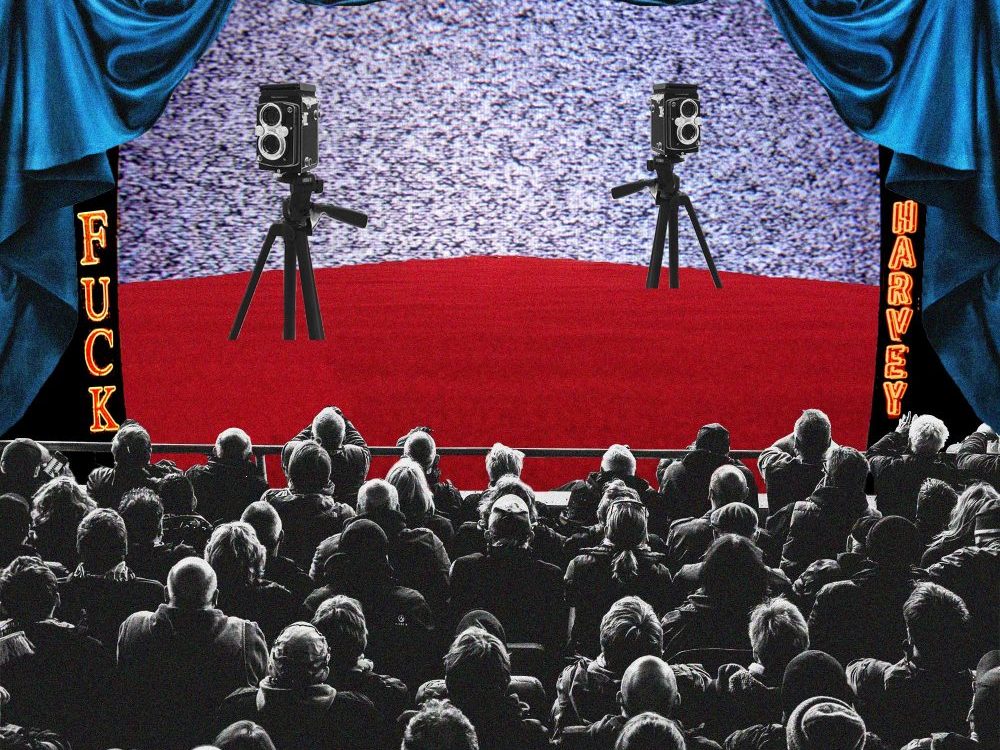It’s a strange day when a court settlement is announced to the tune of $25 million, and it’s not greeted with universal joy and relief.
This is the figure being touted as the amount of compensation agreed by dozens of women who have accused Harvey Weinstein of harassment or sexual assault.
To be sure, on paper, $25million is a royal, life-changing sum, but the devil, as ever, is in the detail. The caveats are plentiful and make for depressing reading.
If the deal is agreed and signed off in court, it will bring to a close almost all of the civil suits filed against the disgraced former film producer over the last two years by more than 30 actresses and former Weinstein employees. It will not require him to pay any of the sums himself, with the money instead coming from insurance companies underwriting Weinstein’s former company, now itself facing bankruptcy proceedings.
The compensation deal will comprise only a fraction of the entire insurance sum, intended to settle the company’s obligations. Half the costs will cover legal fees incurred by Weinstein, his brother Bob and other board members. Most chillingly, Harvey Weinstein will not have to admit to any personal wrongdoing, and the deal will sign off a blanket settlement, so that neither he nor anybody who enabled his behaviour will ever be held accountable.
Two of the women involved have explained why they’ve accepted the settlement, saying that it has left them with a nasty taste in their mouth.
Actress Katherine Kendall tells the New York Times of the settlement, “I don’t love it. I don’t know how to go after him. I don’t know what I can really do.”
And Zoe Brock spoke to the BBC’s Today programme, expressing her despair at finding real justice: “The entire process to me has been a farce. I think the settlement is a joke and signifies a broken system.
“I am devastated, sickened, and I feel defeated and really angry. This has never been about the money. There is no amount of money that can justify what he did or what others helped him do.
“The system has failed me, I’m at a loss, I wish I could have done more for all the other women too scared to come forward.”
And that cuts to the heart of the matter. Just as Weinstein used his power, status and wealth to bulldoze his way through society and claim what he believed he was entitled to, now he’s using those same tools to buy his way out of trouble.
Famous names such as Gwyneth Paltrow, Angelina Jolie, Salma Hayek and Ashley Judd, having previously added their names to the long list of women levelling accusations against Weinstein, have not attached their names to this collective claim. Presumably, they feel any compensation should be shared among less well-off claimants.
But between those included in the deal, there is disappointing disagreement in the ranks over its value. Genie Harrison, a lawyer for Weinstein’s former assistant Sandeep Rehal, explains, “I don’t think there’s a markedly better deal to be made. We have really, truly done the best we can under the circumstances.”
But this is rejected by another lawyer, Douglas Widor, who says, “We reject the notion that this was the best settlement that could have been achieved.” And he calls the $12m legal fee “shameful”.
Widor is acting for Wedil David, one of two brave women who have walked away from the deal, calling it “offensive”.
Not everyone will have that financial luxury. The fact is that, with so many women involved, they will have many varied, often difficult, personal financial circumstances with which to contend. While some may be able to afford to sit it out, others will be waiting in fear, watching legal bills mount up – particularly as the sum due to them may well fall in future if more victims come forward for their share. Their legal opponents have effectively run down the clock.
It is also reported that Weinstein will shortly be declaring personal bankruptcy, cutting off yet another avenue of possible compensation to all these women who have suffered many times over.
The message is a doubly bad one. The first is that, even with everyone’s best efforts and the world’s spotlight on them, money still buys freedom, silence and exculpation, whatever the depravity of the alleged wrongdoing. Weinstein, or at least his insurers, have simply paid up and made the problem go away.
And what of the women all over the world who have put their faith in the #MeToo movement, who have suffered at the hands of male assault, but won’t be receiving anything like these sums in compensation? Just as there is a two-tier system for perpetrators between those who can and those who cannot cough up influential sums of silence-buying cash, so there will be many women who’ve suffered similar fates at others’ hands, but will never receive anything like the film mogul’s sums.
By coincidence, Weinstein was on public show yesterday in Manhattan. He was leaning on a hospital walker, and was as disheveled, pasty, unkempt as he has ever appeared. He resembled, by all measure, a broken man. But, as we know, looks can be deceiving. As the women who bravely took him on have discovered, he still has access to his customary weapons of wealth and pressure, more disturbingly, a willingness to use them.
Weinstein was in court for a separate bail hearing, ahead of his January trial date, when he will face criminal accusations of two assaults on two women. If convicted, he faces possible long-term imprisonment, which may go some way to reinstating his alleged victims’ faith in the justice system that has so far so thoroughly failed them.









